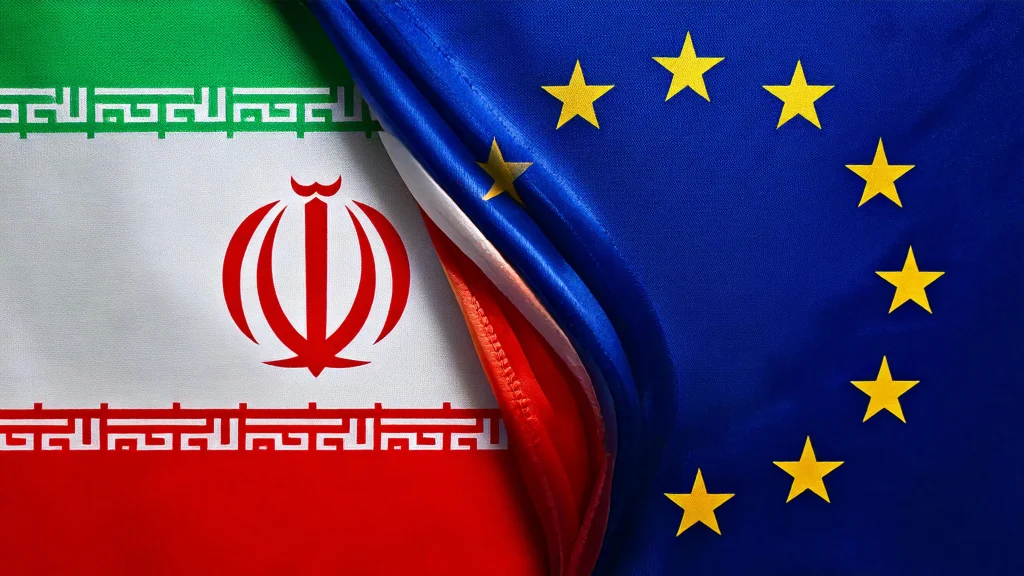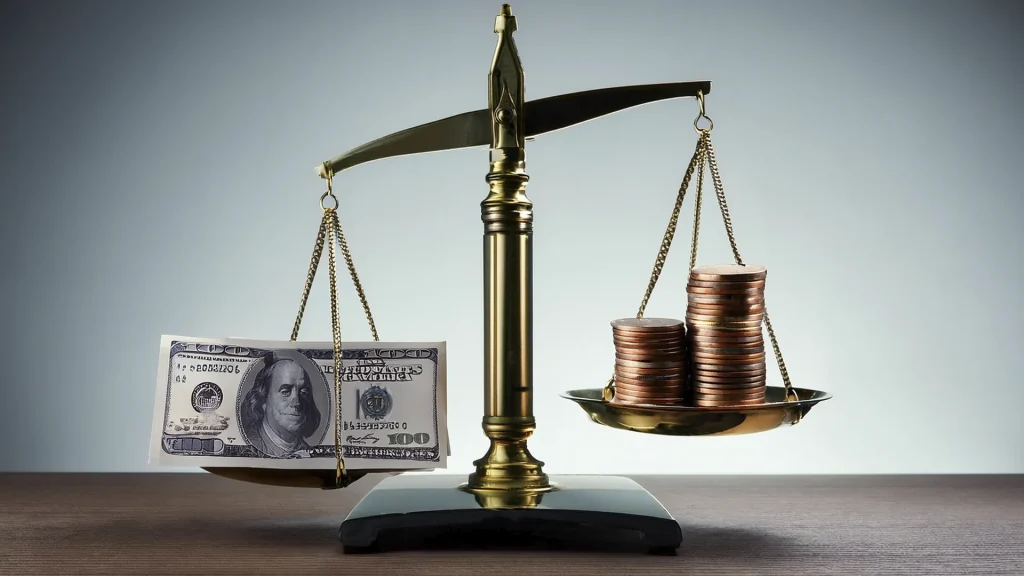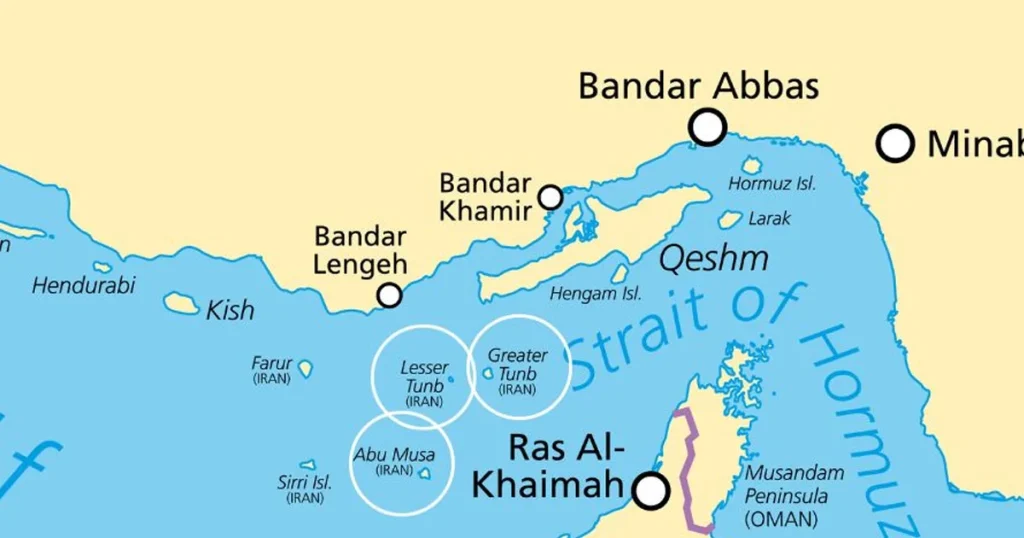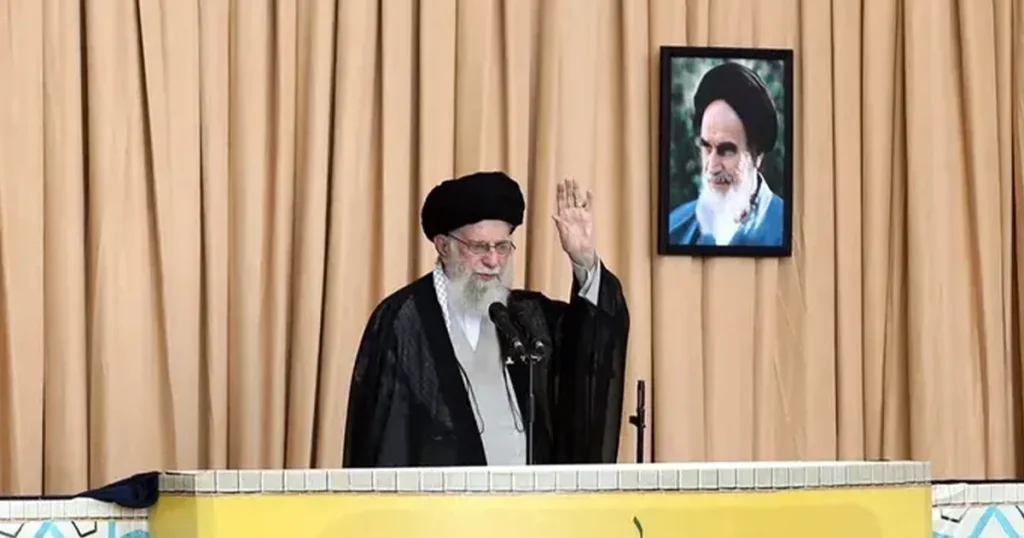The Rise to Power in 1979: A Revolution’s Promise Turns Sour
1979 marked a pivotal year in Iran’s history – a year that saw the overthrow of Shah Mohammad Reza Pahlavi and the rise of Ayatollah Ruhollah Khomeini. Promising freedom and democracy, Khomeini led what initially appeared to be a popular revolution, tapping into the widespread dissatisfaction with the Shah’s regime. Yet, the hope for a brighter future soon dimmed as Khomeini’s true intentions surfaced.
From Modernization to Theocracy: A Nation’s Regression
Under Khomeini’s rule, Iran, which was once progressing towards a more secular and modern society, took a drastic turn. The Ayatollah implemented a strict theocratic regime, enforcing Islamic law (Sharia) and curtailing many of the freedoms the Iranian people had begun to enjoy. This shift not only reversed the course of Iran’s modernization but also alienated many who had initially supported the revolution.
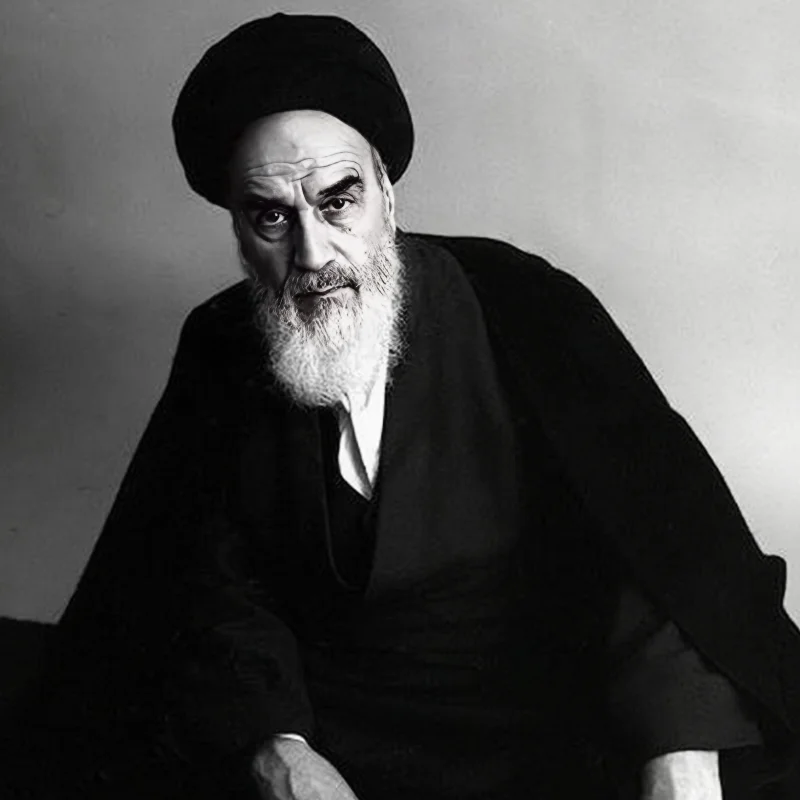
The Establishment of the IRGC: A New Arm of Repression and Control
One of Ayatollah Khomeini’s most significant and lasting actions was the establishment of the Islamic Revolutionary Guard Corps (IRGC) in 1979. Created to protect the regime and uphold the principles of the Islamic Revolution, the IRGC rapidly expanded its influence, becoming a powerful political and military force within Iran. Tasked with guarding against internal and external threats, the IRGC played a crucial role in suppressing opposition and enforcing the regime’s strict ideological doctrine. Beyond its internal security functions, the IRGC also extended its activities internationally, involving itself in military and covert operations. This expansion of power solidified the IRGC as a pivotal instrument in Khomeini’s Iran, further entrenching his authoritarian rule and impacting regional stability.
Immediate Aftermath: The Wave of Executions Following the Revolution
In the immediate aftermath of the 1979 revolution, a grim chapter unfolded in Iran under Khomeini’s leadership. The new regime, seeking to consolidate power and eliminate opposition, initiated a series of brutal executions. These acts targeted former officials of the Shah’s regime, political opponents, and those perceived as threats to the new Islamic order. This period saw a swift and harsh implementation of Islamic law, with trials often lacking due process and resulting in summary executions. These events not only instilled a climate of fear and repression across the country but also signaled the beginning of a regime that would be characterized by its relentless pursuit of absolute power and intolerance of dissent. The immediate post-revolution executions set a precedent for the years of human rights abuses that would follow, leaving a lasting impact on the fabric of Iranian society.
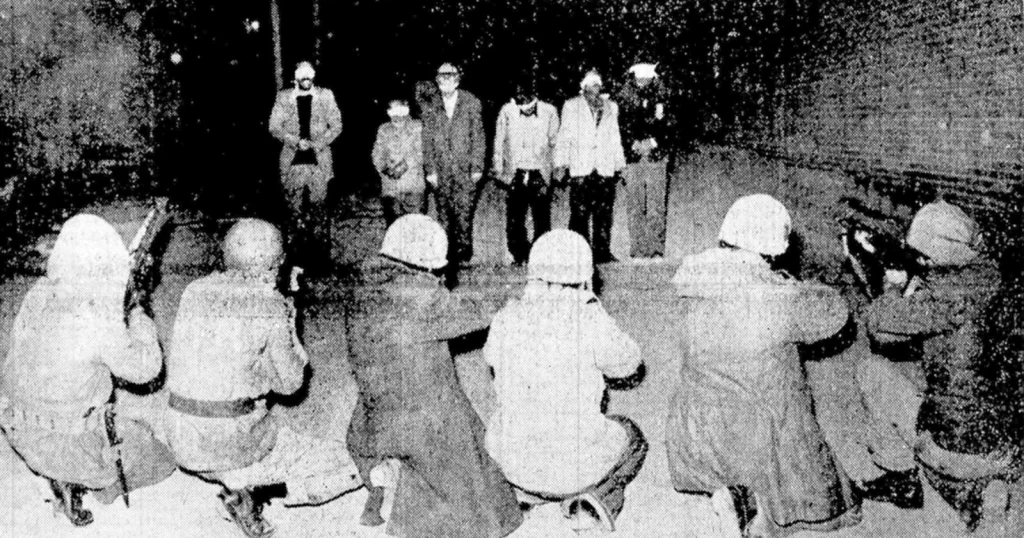
Gender Apartheid and Social Control
Under Khomeini, a harsh gender apartheid system was established, drastically curtailing women’s rights. This regressive policy set back gender equality by decades and imposed oppressive restrictions on women’s dress and behavior, fundamentally altering their role in society.
Crimes Against Humanity: A Trail of Suffering and Oppression
Khomeini’s tenure was marred by numerous human rights abuses. His regime systematically suppressed dissent, leading to the imprisonment, torture, and execution of thousands of political prisoners. The infamous 1988 mass executions of political prisoners remain one of the darkest chapters of his rule. These actions not only inflicted immeasurable suffering on countless individuals and families but also created an atmosphere of fear and repression that continues to affect Iranian society.
Systematic Human Rights Violations
The regime’s human rights abuses were widespread and severe. Beyond the initial post-revolution executions, one of the most harrowing episodes was the use of child soldiers during the Iran-Iraq War (1980-1988). Children, some as young as 12, were sent to the front lines, often used in human wave attacks or to clear minefields.
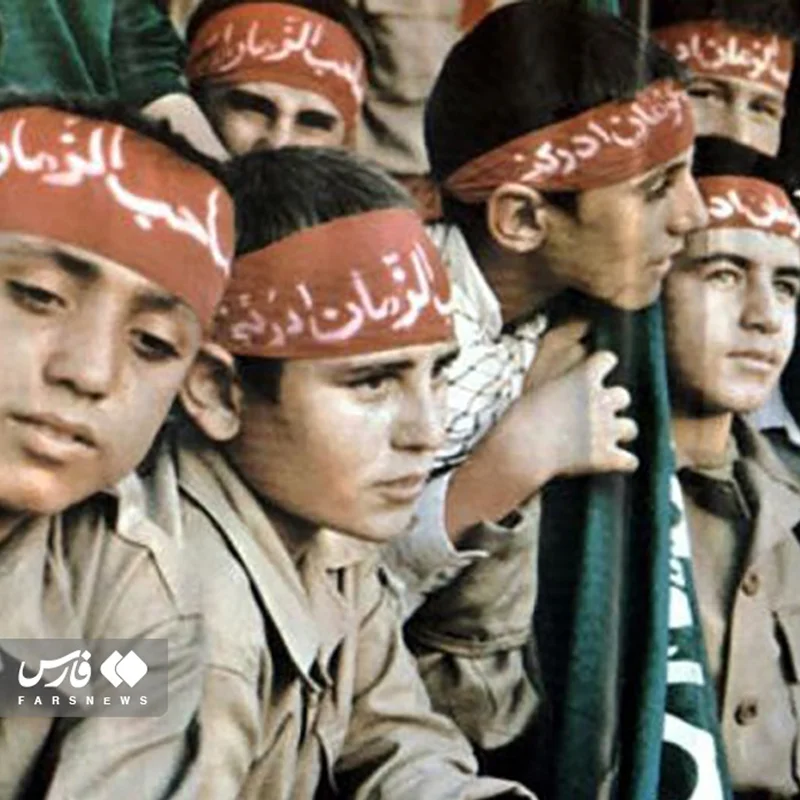
Exporting Violence: Global Assassinations and Terror Plots
Khomeini’s influence extended beyond Iran’s borders, with the regime orchestrating terror plots and assassinations worldwide. Iranian exiles, dissidents, and critics faced persistent threats and violence, showcasing the regime’s intent to silence opposition at any cost.
Economic Decline and Isolation
Economically, Khomeini’s Iran suffered from mismanagement and isolation. The focus on ideological purity over economic pragmatism led to widespread poverty, unemployment, and international isolation, a stark contrast to Iran’s pre-revolutionary trajectory toward prosperity.
Cultural Repression and The Loss of Liberties
The cultural landscape of Iran was severely constrained under Khomeini. Artistic expression and minority rights were heavily suppressed. The atmosphere of fear and repression generated by these policies stifled creativity and social cohesion, contributing to the nation’s descent into an era of darkness.
Conclusion: Reflecting on a Controversial Legacy
Ayatollah Ruhollah Khomeini remains a contentious figure. While revered by some for his religious leadership, many others view his legacy as one of tyranny, suffering, and a drastic reversal of Iran’s fortunes. The impact of his rule—a nation divided, a society repressed, and a legacy marred by violence and human rights abuses—continues to be felt decades later. Khomeini’s Iran serves as a cautionary example of how ideological extremism and absolute power can plunge a nation into an era of darkness and lost potential. His tenure serves as a somber reminder of the destructive power of ideological extremism and autocracy, offering lessons that resonate far beyond Iran’s borders.

